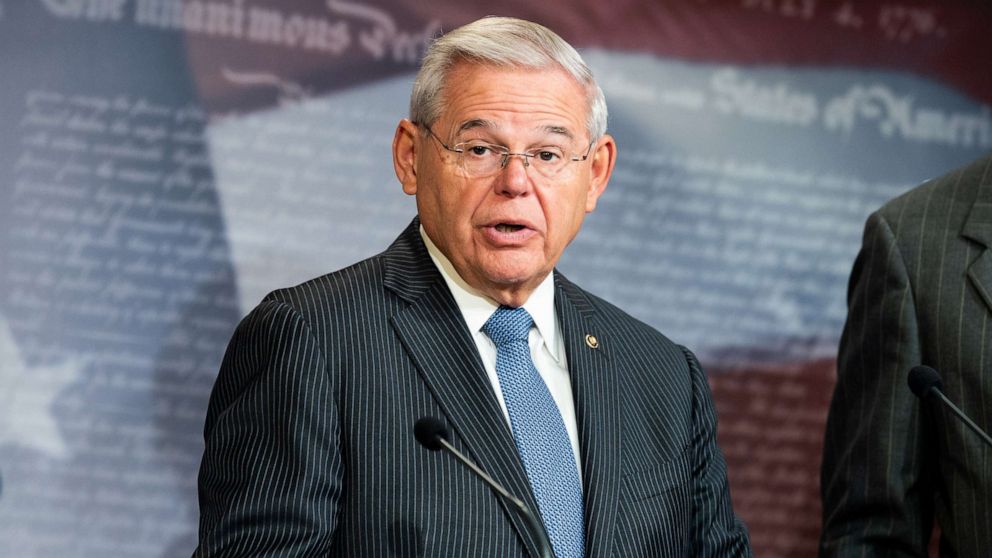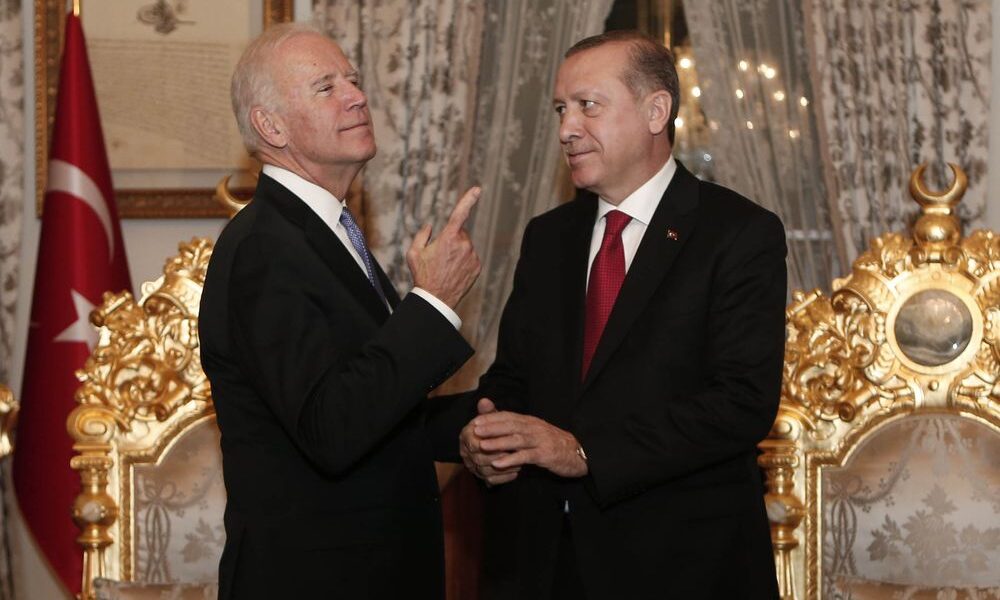U.S. Secretary of State nominee Antony Blinken made an unprecedented statement against Turkey on Tuesday by saying its actions as a NATO member were “unacceptable” and that Washington will “see if more needs to be done” regarding sanctions.
“The idea that a strategic - so-called strategic - partner of ours would actually be in line with one of our biggest strategic competitors in Russia is unacceptable,” replied Blinken to a question from Senator Lindsey Graham regarding Turkey’s purchase of the Russian-made S-400 missile defense system.
Bob Menendez, ranking member of the Senate Foreign Relations Committee, described Ankara’s actions in Syria, Greece, Cyprus and its support for the Azerbaijani invasion of Nagorno-Karabakh, as “destabilizing.”

However, it was the answer that Blinken gave to Menendez’s question on whether they are “cleared eyed about Turkey under Erdoğan” that gave the biggest insight into the new administration’s Turkey policy. Blinken responded that “the bottom line is Turkey is an ally that in many ways... is not acting as an ally should and this is,” he said while chuckling, “a very, very significant challenge for us and we're very clear-eyed about it.”
Turkey owes its current formation to the Bolsheviks who provided shiploads of weapons and gold to Turkish forces just as the Greek Army were about to capture Ankara during the Greco-Turkish War (1919-1922). Then Turkey quickly abandoned their friendship with Moscow, and just four days before the Nazi invasion of the Soviet Union, signed a Treaty of Friendship with Germany. In fact, Turkey was even considering an invasion of the Soviet-controlled Caucasus.
After the end of World War II, with Ankara declaring war on Germany just two months before the Soviet Army captured Berlin, Turkey joined NATO in 1952. Turkey not only became a NATO member, but was elevated with a special privilege due to its geostrategic location on the Black Sea and the foothills of the Caucasus, as well as its control of the Bosporus and Dardanelle Straits.
With this special privilege, Washington has continually appeased Ankara, even blessed the 1974 invasion of northern Cyprus, ignored massacres against Kurdish and Alevi minorities, and now ignores Turkish occupation of northern Syria and Iraq. Despite these atrocities, Ankara was always tolerated by Washington as it remained committed to NATO and continued to serve as a pressure point against Russia, even after the collapse of the Soviet Union when it supported Chechen jihadists.
However, President Recep Tayyip Erdoğan has steered his country on a path of geopolitical independence and acts for Turkey’s own interests, not NATO’s.
Erdoğan has been emboldened to act unilaterally by finding a partner in Russia, and although the interests of Moscow and Ankara are mostly at odds with each other, the common ground is that they lock out the U.S. from key geopolitical flashpoints, such as Syria and the Caucasus.
The close relationship between Trump and Erdoğan was based around the former president’s personal business ties in Turkey. In fact, they were so close that former National Security Advisor John Bolton described Trump’s relationship with Erdoğan as a “bromance” and the former president even described his Turkish counterpart as “very good.” Trump’s disinterest in Turkish aggression, even against fellow NATO member Greece in the East Mediterranean, further emboldened Erdoğan.

With Blinken and Menendez both “clear eyed” about Erdoğan, it appears that for the first time since Turkey became a NATO member, that appeasement for Turkish aggression will no longer be tolerated. Menendez has a long track record in opposing Turkish actions, such as the purchase of the S-400, support for Azerbaijan’s recent invasion of Nagorno-Karabakh, and violating the maritime spaces of Greece and Cyprus.
Biden himself stated in 2015 that he expects to see an independent Kurdistan emerge during his lifetime, something that is absolutely intolerable to Ankara as it undermines the sovereignty of eastern Turkey. The threat of an independent Kurdistan is just one pressure point the new Biden administration could threaten Ankara with. More sanctions could be implemented that would devastate the Turkish economy considering its currency is already being battered, inflation is at a massive 14.6% with 80% of Turks believing this is not the true figure, and debt mounting.
The main issue the Biden administration has with Turkey is not that it violates Greek and Cypriot maritime sovereignty, or that it occupies northern Syria and Cyprus, or that it sponsored the invasion of Nagorno-Karabakh - these are just side issues to build a case against Erdoğan. Rather, the issue is Turkey’s purchase of the S-400 and partnership with Russia.

Russian Foreign Minister Sergey Lavrov said last year that Moscow does not consider Ankara a “strategic ally” – a partner and an ally are two very different things. Ankara has attempted to navigate somewhere between the U.S. and Russia, but with the Biden administration likely to target Erdoğan, Turkey will pivot towards Russia.
Although Moscow will want Ankara to continue its drift from NATO, it too also has limits. Turkey’s deployment of thousands of Syrian jihadists to the borders of Russia’s Dagestan spurred Moscow into action by forcing Armenia and Azerbaijan to end their conflict and allow the rapid deployment of Russian peacekeepers to Nagorno-Karabakh, whilst simultaneously refusing endless demands by Turkey to also deploy peacekeepers.
The Syrian War began 10 years ago due to the support that the Muslim Brotherhood and Al-Qaeda received from the West, Turkey and many Arab states. Today the war is solely maintained by Turkey’s refusal to end its backing for Idlib-based jihadists. This is another point of frustration for Moscow against Ankara.
Despite Ankara always being appeased and privileged by the U.S., it appears that patience over Erdoğan’s unilateral actions have come to end. Erdoğan will attempt to pivot his country more towards Russia in response to increasing American pressure. Moscow may allow this to a certain degree to cause a further split in the redundant NATO alliance, but it too will also have limits in tolerating Erdoğan.
Turkey will celebrate in 2023 100 years since the foundation of the modern republic, but by then Ankara could be more isolated then ever as the U.S. and Russia may no longer want to play Erdoğan’s games.
Source: InfoBrics

